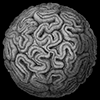A fanciful little post about li’l old main().

“The main() function
of colorshould be to serve expression.”
— Henri Matisse
The function main() is a normal program’s entry point [§basic.start.main].
Minimalism
The shortest conforming C++ executable program is [1]:
int main(){}
A few interesting things to about this snippet:
- In a conforming implementation we must specify the return type
int.
However, some compilers will only warn on the even minimalermain(){}. - We do not need to
returna value frommain().
“If control flows off the end of… main, the effect is equivalent to a return with0“.
Shafik Yaghmour points out in the comments that this curious behavior is due to the C99 standard finally having to bow to sloppy existing practices.
Modernism
As kindly suggested by @krzaq, let’s not forget the modern incarnation:
auto main() -> int {}
Which uses auto with the trailing return type int.
Arguments
Sometimes we want to pass command line arguments to our program.
Although main cannot be overloaded within a program, it actually has multiple possible signatures.
In addition to the empty int main() we have already seen, it may also be (the obliquely phrased) “a function of (int,pointer to pointer tochar) returning int” and on some platforms may support any further (optional) parameters beyond the first familiar two.
This gives us the familiar int main(int argc, char* argv[]) where:
argcis the number of command line arguments;argvis an array of pointers tochar*null-terminated multibyte strings that represent the arguments passed to the program from the execution environment;- When
argcis nonzero,argv[0]will be the name of the executable or""where unavailable; - Regardless, even when
0 == argc,nullptr == argv[argc]is guaranteed.
We can write the contrived minimal “main with args”:
int main(int,char**){}
In fact, all of the following are valid main signatures:
int main()No command line arguments;int main(int,char**){}Minimal program with args;int main(int argc, char* argv[])Most common variant;int main(int ac, char* av[])Alternate names,argcandargvare just a convention;int main(int argc, char** argv)Alternate array type: “pointer to pointer tochar”int main(int const, char const * const * const )We can specify the args asconst;
When argv is of type char* argv[], the array length is (obviously) determined by the number of program arguments and thus dynamically sized for each program execution. It is not a literal array (whose size is known at compile time) as often indicated by this syntax.
Beware The Imp 😈
Beyond the first two arguments, all 3 major compilers gladly accept:
int main(int, char**, char**){}
Support for and what the third argument means or contains is implementation defined so [2]:
😈 Beware The Imp 😈
A very common extension (e.g. Windows and Linux) is passing a third argument of type char*[] pointing at an array of pointers to the execution environment variables.
Arguments Over Arguments
From here on, we are in The Imp’s quagmire.
Alternate Types
The underlying type of the argv strings must be char.
Given:
int main(int, signed char** av) // use signed char instead of char
{
return av[0][0];
}
- Clang chokes with
error: second parameter of 'main' (argument array) must be of type 'char **' - GCC works fine but:
warning: second argument of 'int main(int, signed char**)' should be 'char **' - MSVC does not object at all.
More Arguments
What if we add more arguments:
int main(int, char**, char**, char**){}
- Clang reasonably rejects with
error: too many parameters (4) for 'main': must be 0, 2, or 3; - MSVC gladly accepts this;
- GCC accepts the code with the curious:
warning: 'int main(int, char**, char**, char**)' takes only zero or two arguments.
But we’ve already seen that it happily accepts the three argument version as well. Curious.
What the 4th argument means, I don’t know.
In fact, both gcc and MSVC seem quite nonchalant about any extra arguments.
int main(int,
char**, char**, char**, char**, char**, char**, char**, char**, char**, char**, char**, char**, char**,
char**, char**, char**, char**, char**, char**, char**, char**, char**, char**, char**, char**, char**,
char**, char**, char**, char**, char**, char**, char**, char**, char**, char**, char**, char**, char**,
char**, char**, char**, char**, char**, char**, char**, char**, char**, char**, char**, char**, char**,
char**, char**, char**, char**, char**, char**, char**, char**, char**, char**, char**, char**, char**,
char**, char**, char**, char**, char**, char**, char**, char**, char**, char**, char**, char**, char**,
char**, char**, char**, char**, char**, char**, char**, char**, char**, char**, char**, char**, char**,
char**, char**, char**, char**, char**, char**, char**, char**, char**, char**, char**, char**, char**,
char**, char**, char**, char**, char**, char**, char**, char**, char**, char**, char**, char**, char**,
char**, char**, char**, char**, char**, char**, char**, char**, char**, char**, char**, char**, char**,
char**, char**, char**, char**, char**, char**, char**, char**, char**, char**, char**, char**, char**,
char**, char**, char**, char**, char**, char**, char**, char**, char**, char**, char**, char**, char**,
char**, char**, char**, char**, char**, char**, char**, char**, char**, char**, char**, char**, char**,
char**, char**, char**, char**, char**, char**, char**, char**, char**, char**, char**, char**, char**,
char**, char**, char**, char**, char**, char**, char**, char**, char**, char**, char**, char**, char**,
char**, char**, char**, char**, char**, char**, char**, char**, char**, char**, char**, char**, char**,
char**, char**, char**, char**, char**, char**, char**, char**, char**, char**, char**, char**, char**,
char**, char**, char**, char**, char**, char**, char**, char**, char**, char**, char**, char**, char**,
char**, char**, char**, char**, char**, char**, char**, char**, char**, char**, char**, char**, char**,
char**, char**, char**, char**, char**, char**, char**, char**, char**, char**, char**, char**, char**,
char**, char**, char**, char**, char**, char**, char**, char**, char**, char**, char**, char**, char**,
char**, char**, char**, char**, char**, char**, char**, char**, char**, char**, char**, char**, char**,
char**, char**, char**, char**, char**, char**, char**, char**, char**, char**, char**, char**, char**,
char**, char**, char**, char**, char**, char**, char**, char**, char**, char**, char**, char**, char**,
char**, char**, char**, char**, char**, char**, char**, char**, char**, char**, char**, char**, char**,
char**, char**, char**, char**, char**, char**, char**, char**, char**, char**, char**, char**, char**,
char**, char**, char**, char**, char**, char**, char**, char**, char**, char**, char**, char**, char**,
char**, char**, char**, char**, char**, char**, char**, char**, char**, char**, char**, char**, char**,
char**, char**, char**, char**, char**, char**, char**, char**, char**, char**, char**, char**, char**,
char**, char**, char**, char**, char**, char**, char**, char**, char**, char**, char**, char**, char**,
char**, char**, char**, char**, char**, char**, char**, char**, char**, char**, char**, char**, char**,
char**, char**, char**, char**, char**, char**, char**, char**, char**, char**, char**, char**, char**,
char**, char**, char**, char**, char**, char**, char**, char**, char**, char**, char**, char**, char**,
char**, char**, char**, char**, char**, char**, char**, char**, char**, char**, char**, char**, char**,
char**, char**, char**, char**, char**, char**, char**, char**, char**, char**, char**, char**, char**,
char**, char**, char**, char**, char**, char**, char**, char**, char**, char**, char**, char**, char**,
char**, char**, char**, char**, char**, char**, char**, char**, char**, char**, char**, char**, char**,
char**, char**, char**, char**, char**, char**, char**, char**, char**, char**, char**, char**, char**,
char**, char**, char**, char**, char**, char**, char**, char**, char**, char**, char**, char**, char**,
char**, char**, char**, char**, char**, char**, char**, char**, char**, char**, char**, char**, char**
){}
Extensions
MSVC also supports a non-standard, Microsoft-Specific alternative function:
wmain(int argc, wchar_t *argv[], wchar_t *envp[])
for working with wide Unicode characters on the Windows command line. Read more about it here.
Termination
There are surprisingly many of ways of leaving main(). See my Terminators post for more details.

Summary
Trusty old main() is the first function we meet when writing our first “Hello World”. We take it for granted and don’t often give it a second thought. But it is a special function with some unique behaviors, tricks and secrets - some of them dark. So…
😈 Beware The Imp 😈

Guru Pop-Quiz
What is the shortest conforming C++ program with exception handling (contrived as it may be)?
Seriously - try it.
Hint...
Can you match or beat 27 character?
UBnacci
👿
👿
👿👿
👿👿👿
👿👿👿👿👿
👿👿👿👿👿👿👿👿
👿👿👿👿👿👿👿👿👿👿👿👿👿
The standard says:
The function main shall not be used within a program.
The main function has several special properties:
- It cannot be used anywhere in the program: in particular, it cannot be called recursively
Disregarding and ignoring this rule puts us into UB (undefined behavior) territory.
However, speaking of tiny programs, I was surprised to see that this program, which I call UBnacci, works on all major compilers:
// UBnacii: Do not do try this at home! Here be Nasal Demons!
int main(int argc, char** = nullptr) // defaults to nullptr
{ return argc < 2 ? argc : main(argc-1) + main(argc-2); }
This tiny app will calculate the Fibonacci number of argc by recursivly calling main() itself!
To make this even more fun, note that the unnamed char** argument defaults to nullptr so that main() can be called with a single argument!
Again, this is just a fun little app, but DO NOT do this in real code!
👿👿👿👿👿👿👿👿👿👿👿👿👿
👿👿👿👿👿👿👿👿
👿👿👿👿👿
👿👿👿
👿👿
👿
👿
If you found this post interesting, have a better quiz answer, you think I missed something or simply want to discuss this further, please leave a message in the comments below, on Twitter, Reddit or find me on the C++ Slack channel.
Credits: banner :: giphy :: Collapsable Markdown section
Footnotes
-
The requirement that every source file end with a non-escaped newline was removed in C++11, but is required in C and pre-C++11. ↩
-
The Imp must not be confused the the Nasal Demon 👿 of undefined behavior. ↩
